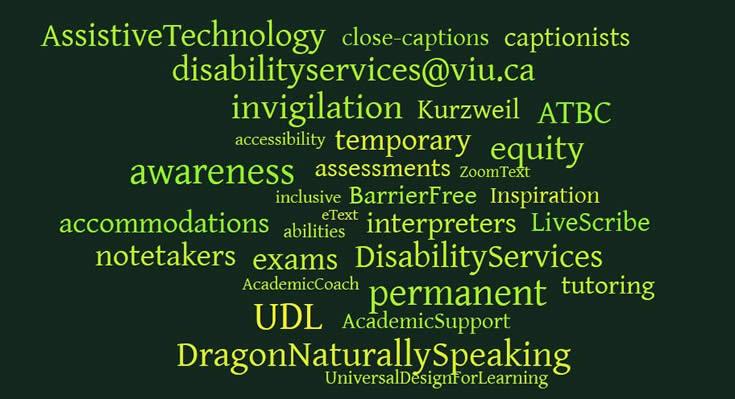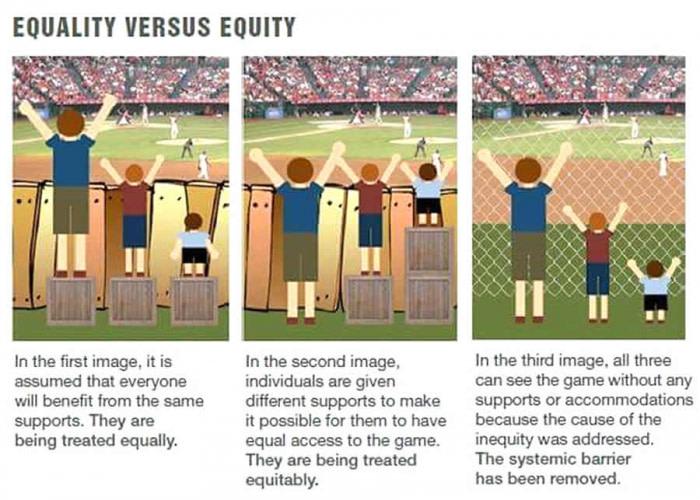[caption]

What is an Accommodation?
An accommodation is an adjustment in teaching, learning, or evaluation processes that removes or reduces disability-related barriers. Accommodations improve access to the opportunity to learn; they do not guarantee success. Accommodations are determined individually for each student, and are linked to the disability-related functional limitations (barriers) identified in the student's documentation.
Examples of Accommodations
- Extra time for exams
- permission to record lectures as a form of notetaking
- alternate format textbooks (for use with screen readers or text-to-speech software)
- ASL interpretor
- Supportive classroom chair
Accommodations do not lower academic standards; all students must meet the required learning outcomes for their courses, with or without accommodation.

Accommodation Letters
- A VIU Access Specialist meets with the student to review the intake form and documentation (see Steps for Connecting with Accessibility Services).
- They discuss and identify potential academic barriers and identify what adjustments (accommodations) may be helpful to reduce the barriers and improve the student's access to the course.
- The Access Specialist provides the student with an Accommodation letter for students to give to their instructors (by email or in person). The accommodation letter lists the accommodations the student has been approved to receive. It does not disclose a diagnosis.
- Students must actively engage in the accommodation process.
- Students must update their accommodation letter every year, and let an Access Specialist know if their barriers or needs change.
Communicating with Instructors
Once you have your accommodation letter, we recommend you:
- Email the letter to your instructors, or set up a meeting during their posted office hours.
- Remember that you're not required to disclose your diagnosis to instructors. See What the Instructor Needs to Know video and think about what you want to say.
- Introduce yourself and review your accommodation letter.
- Discuss your accommodation needs.
- Communicate any difficulties you have with learning.
- Come to an agreement about how accommodation will be provided.
- Contact an Access Specialist if you want assistance communicating with your instructor.
